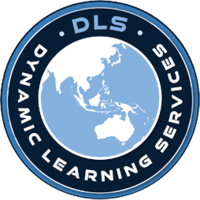
Food Science courses in Wodonga
Course providers in Wodonga
The following providers offer Food Science courses in Wodonga.











Career Pathfinder
Skills shortages + AI Exposure
Discover in-demand careers and understand how each role may be impacted by AI and automation.
- See in-demand occupations across Australia
- Check AI Exposure ratings
- Compare training duration and average income
Further reading


Most popular transport and logistics courses
1st August 2022
Most popular tourism and hospitality courses
26th July 2022All courses
- MSL30122 Certificate III in Laboratory Skills
- MSL40122 Certificate IV in Laboratory Techniques
- HLT37415 Certificate III in Pathology Assistance
- 52896WA Advanced Diploma of Civil and Structural Engineering (Materials Testing)
- HLTSS00064 Infection Control Skill Set
- MSM30318 Certificate III in Manufactured Mineral Products
- FBP40421 Certificate IV in Food Science and Technology
- Bachelor of Food Science and Nutrition
- MSL30118 Certificate III in Laboratory Skills
- MSL50122 Diploma of Laboratory Technology
- Bachelor of Agriculture and Technology (Viticulture and Winemaking)
- Bachelor of Biosecurity Science
- Bachelor of Science (Food Science)
- NWP30222 Certificate III in Water Industry Operations (Wastewater Treatment)
- AHC41516 Certificate IV in Seed Testing
- MSL20118 Certificate II in Sampling and Measurement
- MSL50118 Diploma of Laboratory Technology
- FBP50121 Diploma of Food Science and Technology
- MSL50122 Diploma of Laboratory Technology (Food)
- Bachelor of Advanced Science (Honours) (Physics)
- Graduate Certificate in Food Science and Technology
- Bachelor of Science (Forensic Biology and Toxicology)
- Bachelor of Advanced Science (Honours) (Microbiology)
- FBP10121 Certificate I in Food Processing
More about Food Science courses
Exploring Food Science Courses in Wodonga opens up a world of opportunities for those passionate about understanding the science behind food. Wodonga, a city situated on the border of Victoria and New South Wales, offers a range of courses designed for students keen to delve into the intricacies of food science. Enrolling in these programmes can lead you to exciting career paths in various sectors, including food technology, nutrition, and research. The training providers in the region are recognised within their industries, ensuring high-quality education and practical training.
Studying food science can encompass various sub-disciplines, such as Mathematics and Statistics which plays a vital role in food analysis and quality control. Furthermore, students may find themselves interested in Data Sciences to better understand consumer trends and food safety data. By engaging in these specialised areas, students will gain a comprehensive understanding of food science, ultimately setting themselves on a path toward careers in food quality assurance and product development.
Wodonga’s training providers also offer focused studies in Biology, where learners appreciate the biological processes that affect food production and safety. By understanding biological systems, students become well-equipped to work in diverse environments, from laboratories to food manufacturing plants. Graduates who excel in their studies may find job roles such as food microbiologist or quality control manager, making a significant impact on the food industry while contributing to community health standards.
Additionally, courses in Chemistry are foundational for aspiring food scientists, as they underpin the chemical composition and properties of food substances. With emerging issues surrounding food safety and nutritional value, those with a strong chemistry background are invaluable. As Wodonga continues to grow, the need for trained professionals in food science who can ensure food safety and compliance is ever-increasing, presenting plentiful job opportunities.
Those interested in broader scientific fields may also explore courses such as Earth Science or Neuroscience, to comprehend how environmental factors affect food production. By integrating lessons learned from various scientific disciplines, Wodonga graduates are better prepared for multifaceted job roles that require innovative thinking and problem-solving skills in the food sector. Engaging in these educational experiences is the first step toward a fulfilling career within the vibrant food industry.
